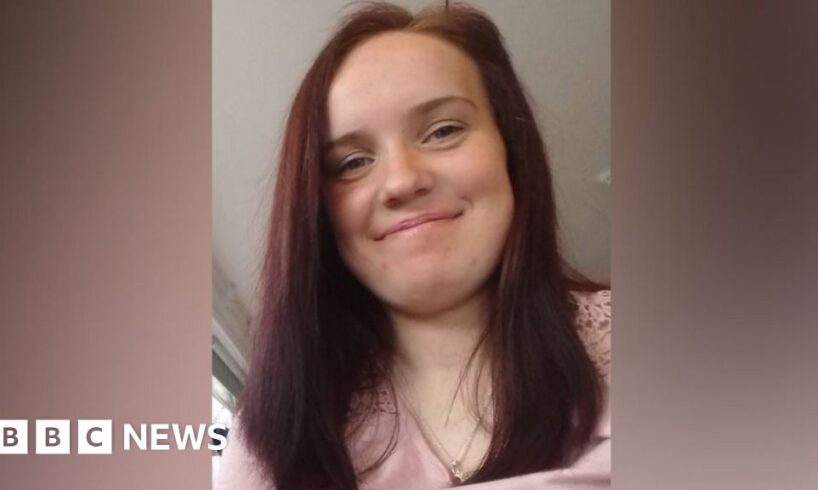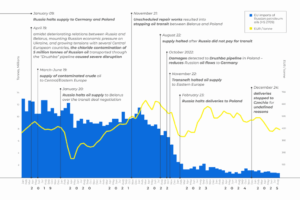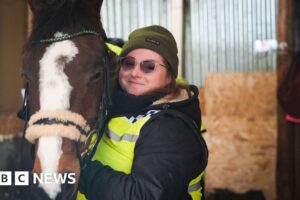
Lucy Campbell
The removal of the two-child benefit policy will see households receive £3,500 per year for each additional child
Ending the two-child cap benefit will be “life-changing”, according to a County Londonderry mum.
Mother-of-four Lucy Campbell from Coleraine said it will mean her family “wouldn’t struggle anymore.”
The Chancellor Rachel Reeves announced on Wednesday that the two-child benefit cap “within universal credit” is being lifted from April 2026.
With rising costs in recent years, Ms Campbell told BBC News NI she thinks about household finances constantly.
“I would go to bed and my head would still be constantly working, like what needs paid? Do I have enough for this?”
Ms Campbell said she has to decide what items her children can “do without” until she can afford them.
It could be the standard of their clothes, or if they need a new pair of trainers.
“It didn’t used to be as hard,” Lucy claims, “but now it’s got really, really hard.”
She told BBC News NI she always tries to budget her money but “it’s still hard even when you learn to budget, it still takes a strain on you”.
Earlier this month, the chancellor told the BBC it was not right that children in bigger families were “penalised” through “no fault of their own”
The chancellor used her Budget speech to scrap the cap, which currently means parents can only claim universal credit or tax credits for their first two children.
“Why are two kids worth more money than the other two?” Lucy asked.
“I don’t really see how it’s fair. Just because the older two were born first and they get money that the other two don’t.
“It’s the kids that are having to suffer but you have to try and make do with what you have.”
The removal of the policy, announced as part of the Budget on Wednesday, would see households receive £3,500 per year for each additional child.
‘My kids always come first’
The 26-year-old told BBC News NI she hasn’t always received benefits.
“Whenever my older three were quite young, I worked for years on and off.
“I love working, but whenever you get set back and then you can’t go back out to work, it’s then it really hits you. You haven’t got that extra money coming in.
“Then you’re having to go from working and getting a good wage to being on the benefits that you’re on.”
Ms Campbell said her children always come first with her often going without.
“It takes a toll on you,” she added.
The change could be worth £75m to families in Northern Ireland, who are more likely to benefit from the change, with larger average family size than the rest of the UK.
A 2019 House of Commons library report found that 21.4% of families in Northern Ireland have three or more children, compared to just 14.7% in the UK.
‘Change will reduce child poverty’
Dr Ciara Fitzpatrick, Senior Lecturer at Ulster University’s Social Justice Institute, said it will mean “children have the opportunity to eat better, to participate in activities that will enrich their lives and the intense stress and anxiety that grips a household in hardship will today be loosened”.
“The removal of the two-child limit is the most cost-effective and efficient way to reduce rising child poverty,” she said.
“This significant announcement alongside the NI Executive’s commitment to mitigate the benefit cap will undoubtedly create a phenomenal material difference to all families.
“This is particularly welcome in view of the lack of resources measures that targeted support to children in the recent NI Executive draft anti-poverty strategy.”
Budget money for Northern Ireland
Reeves also said the government would provide an additional £370m to the Northern Ireland Executive over the next three years.
She said it would cover the government’s current Spending Review period, via the Barnett formula.
Outlining her budget, she said the benefits of investment and growth “must be built and felt in every part of the UK”.
The Barnett formula is a UK government system for allocating block grant funding to devolved administrations in Scotland, Wales, and Northern Ireland based on changes in UK-wide departmental spending.





